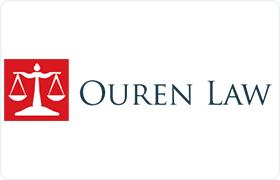Moxee Child Custody Lawyer, Washington
Sponsored Law Firm
-
 x
x

Click For More Info:
-
Ouren Law
4101 South Union Street Kennewick, WA 99337» view mapDivorce & Family Law Dedicated. Straightforward. Tough.
With more than a decade of experience, Attorney Ouren has helped many clients achieve successful results in their family law and criminal law matters.
800-971-6601
Includes: Guardianships & Conservatorships, Custody & Visitation
Kathleen Erin Hitchcock
Juvenile Law, Federal, Municipal, Guardianships & Conservatorships
Status: Deceased Licensed: 32 Years
 Kimberly Ouren Kennewick, WA
Kimberly Ouren Kennewick, WA Practice AreasExpertise
Practice AreasExpertise
